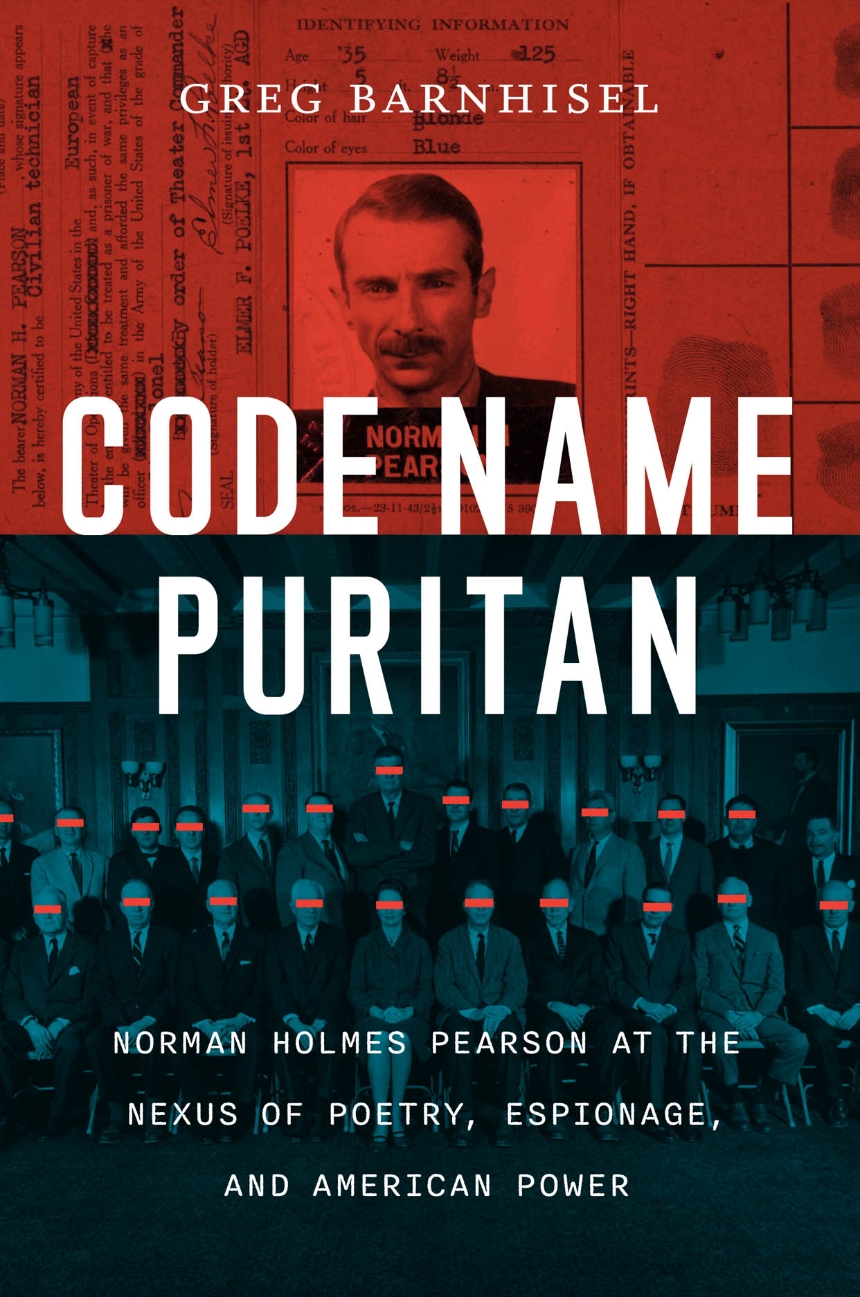Code Name Puritan
Norman Holmes Pearson at the Nexus of Poetry, Espionage, and American Power
9780226647203
9780226647340
Code Name Puritan
Norman Holmes Pearson at the Nexus of Poetry, Espionage, and American Power
An insightful biography of an unassuming literary scholar—and spy—who transformed postwar American culture.
Although his impact on twentieth-century American cultural life was profound, few people know the story of Norman Holmes Pearson. Pearson’s life embodied the Cold War alliances among US artists, scholars, and the national-security state that coalesced after World War II. As a Yale professor and editor, he helped legitimize the study of American culture and shaped the public’s understanding of literary modernism—significantly, the work of women poets such as Hilda Doolittle and Gertrude Stein. At the same time, as a spy, recruiter, and cultural diplomat, he connected the academy, the State Department, and even the CIA.
In Code Name Puritan, Greg Barnhisel maps Pearson’s life, from his childhood injury that led to a visible, permanent disability to his wartime counterespionage work neutralizing the Nazis’ spy network to his powerful role in the cultural and political heyday sometimes called the American Century. Written with clarity and informed by meticulous research, Barnhisel’s revelatory portrait of Pearson details how his unique experiences shaped his beliefs about the American character, from the Puritans onward.
Although his impact on twentieth-century American cultural life was profound, few people know the story of Norman Holmes Pearson. Pearson’s life embodied the Cold War alliances among US artists, scholars, and the national-security state that coalesced after World War II. As a Yale professor and editor, he helped legitimize the study of American culture and shaped the public’s understanding of literary modernism—significantly, the work of women poets such as Hilda Doolittle and Gertrude Stein. At the same time, as a spy, recruiter, and cultural diplomat, he connected the academy, the State Department, and even the CIA.
In Code Name Puritan, Greg Barnhisel maps Pearson’s life, from his childhood injury that led to a visible, permanent disability to his wartime counterespionage work neutralizing the Nazis’ spy network to his powerful role in the cultural and political heyday sometimes called the American Century. Written with clarity and informed by meticulous research, Barnhisel’s revelatory portrait of Pearson details how his unique experiences shaped his beliefs about the American character, from the Puritans onward.
392 pages | 15 halftones | 6 x 9 | © 2024
History: American History
Literature and Literary Criticism: American and Canadian Literature
Reviews
Table of Contents
Introduction
1. Born a Puritan
2. Bright College Years
3. The Cream of American Intellectuality
4. Big Shots
5. Heady Society
6. The Puritan Goes to War
7. The Hot Property
8. Grampaw and the Commahunter
9. The Networker
10. An Intellectual Ménage à Trois
11. American Studies and the American Century
12. Odd Man In
Conclusion
Acknowledgments
Notes
Bibliography
Index
1. Born a Puritan
2. Bright College Years
3. The Cream of American Intellectuality
4. Big Shots
5. Heady Society
6. The Puritan Goes to War
7. The Hot Property
8. Grampaw and the Commahunter
9. The Networker
10. An Intellectual Ménage à Trois
11. American Studies and the American Century
12. Odd Man In
Conclusion
Acknowledgments
Notes
Bibliography
Index
